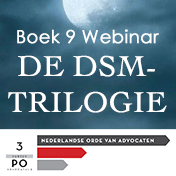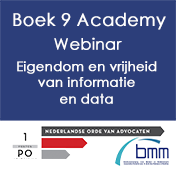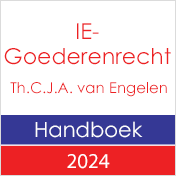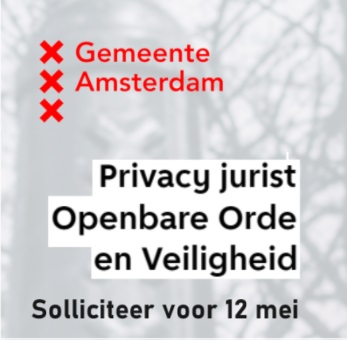IEPT20170713, GEU, Ecolab USA v EUIPO
Merkenrecht. Beroep tegen de weigering tot inschrijving van het woordmerk ‘ECOLAB’, ingeschreven voor waren en diensten van klassen 1 t/m 12, 14, 16, 18, 20 t/m 22, 24 t/m 28, 30, 35, 37, 38 en 40 t/m 45.
Het beroep wordt verworpen. Het woordmerk ‘ECOLAB’, ingeschreven voor o.a. wetenschappelijk onderzoek, is beschrijvend en heeft geen onderscheidend vermogen. Het woordmerk is beschrijvend voor de waren en diensten waarvoor het is ingeschreven. Het relevante publiek, bestaande uit Engelssprekende professionals, zal het woordmerk begrijpen als de samenvoeging van de afkortingen ‘eco’ en ‘lab’. Ondanks dat dit geen bestaand Engels woord is, is het voor het relevante publiek duidelijk dat hiermee een ecologisch laboratorium bedoeld wordt. De waren en diensten waarvoor het woordmerk is ingeschreven betreffen waren en diensten die verband houden met ecologische laboratoria, daarom is het woordmerk beschrijvend. Het aangeleverde bewijs was niet voldoende om het normaal gebruik van het woordmerk vast te stellen waardoor het onderscheidend vermogen van het woordmerk niet bewezen is. Verder heeft de kamer van beroep een goed onderbouwde uitspraak gedaan en niet in strijd gehandeld met het beginsel van gelijke behandeling.
34. The Board of Appeal did not commit any error of assessment in finding that the relevant public would perceive the sign ECOLAB as a combination of the abbreviations ‘eco’ and ‘lab’ and would be likely to attribute to it the meaning of ‘ecological laboratory’. In that regard, it must be observed that there is no perceptible difference, within the meaning of the case-law cited in paragraph 26 above, between the term ECOLAB and the sum of the parts of which it is composed. Hence, the English-speaking, professional consumer of those services would immediately understand the sign applied for, taken as a whole, and be likely to interpret it as meaning ‘ecological laboratory’.
53. In the present case, in order to substantiate the claim that distinctiveness had been acquired through use, the applicant produced a copy of an international classification of the world’s biggest companies having regard to capitalisation, turnover, profits and capital, according to which, in 2015, its global turnover was 34.1 billion United States dollars (USD, about EUR 32.6 billion) and it was classified in the 498th position of that classification. In that regard, it suffices to observe that that evidence, which only refers to the global turnover and not to that obtained by the provision of specific services supplied under the mark applied for in the European Union, is not capable of proving that, at the date of the application for registration, the mark applied for had acquired distinctive character throughout the European Union.
T-150/16 - ECLI:EU:T:2017:490
Het beroep wordt verworpen. Het woordmerk ‘ECOLAB’, ingeschreven voor o.a. wetenschappelijk onderzoek, is beschrijvend en heeft geen onderscheidend vermogen. Het woordmerk is beschrijvend voor de waren en diensten waarvoor het is ingeschreven. Het relevante publiek, bestaande uit Engelssprekende professionals, zal het woordmerk begrijpen als de samenvoeging van de afkortingen ‘eco’ en ‘lab’. Ondanks dat dit geen bestaand Engels woord is, is het voor het relevante publiek duidelijk dat hiermee een ecologisch laboratorium bedoeld wordt. De waren en diensten waarvoor het woordmerk is ingeschreven betreffen waren en diensten die verband houden met ecologische laboratoria, daarom is het woordmerk beschrijvend. Het aangeleverde bewijs was niet voldoende om het normaal gebruik van het woordmerk vast te stellen waardoor het onderscheidend vermogen van het woordmerk niet bewezen is. Verder heeft de kamer van beroep een goed onderbouwde uitspraak gedaan en niet in strijd gehandeld met het beginsel van gelijke behandeling.
34. The Board of Appeal did not commit any error of assessment in finding that the relevant public would perceive the sign ECOLAB as a combination of the abbreviations ‘eco’ and ‘lab’ and would be likely to attribute to it the meaning of ‘ecological laboratory’. In that regard, it must be observed that there is no perceptible difference, within the meaning of the case-law cited in paragraph 26 above, between the term ECOLAB and the sum of the parts of which it is composed. Hence, the English-speaking, professional consumer of those services would immediately understand the sign applied for, taken as a whole, and be likely to interpret it as meaning ‘ecological laboratory’.
53. In the present case, in order to substantiate the claim that distinctiveness had been acquired through use, the applicant produced a copy of an international classification of the world’s biggest companies having regard to capitalisation, turnover, profits and capital, according to which, in 2015, its global turnover was 34.1 billion United States dollars (USD, about EUR 32.6 billion) and it was classified in the 498th position of that classification. In that regard, it suffices to observe that that evidence, which only refers to the global turnover and not to that obtained by the provision of specific services supplied under the mark applied for in the European Union, is not capable of proving that, at the date of the application for registration, the mark applied for had acquired distinctive character throughout the European Union.
T-150/16 - ECLI:EU:T:2017:490



























































